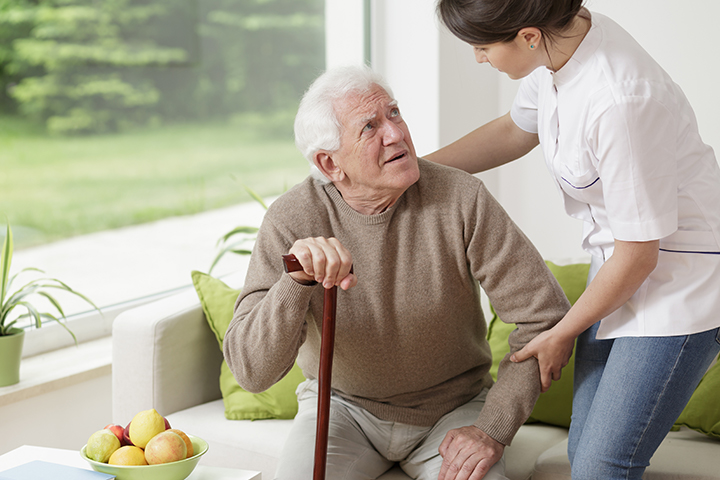
The world of elder care is constantly evolving, with medical devices playing an increasingly pivotal role. For many elderly individuals, these devices are not just tools but lifelines that enhance their quality of life. However, with great reliance comes the responsibility to ensure that these devices are used safely and effectively. Navigating this landscape requires a blend of knowledge, caution, and compassion. This article delves into the world of medical devices in elderly care, highlighting the essentials of ensuring their proper use and the protection they offer to our elders’ health and well-being.
Understanding Medical Devices in Elderly Care
In the realm of elderly care, medical devices serve as crucial aids for various health needs. Commonly used devices range from basic blood pressure monitors and hearing aids to more complex equipment like Continuous Positive Airway Pressure (CPAP) machines and mobility aids. These devices not only assist in routine health monitoring but also play a significant role in enhancing the daily living standards of the elderly. Their impact is profound; medical devices can mean the difference between dependence and independence, significantly affecting the physical, mental, and emotional well-being of our elderly loved ones.
Identifying and Addressing Risks
While medical devices provide essential support, they also carry inherent risks. To mitigate these, start by conducting a risk assessment of each device, considering factors like electrical safety, infection control, and the potential for operational errors. Regularly inspecting devices for wear and tear and staying alert to signs of malfunction are key preventative steps. Educate caregivers and the elderly on the common signs of device failure and the appropriate steps to take in such scenarios.
It’s also critical to maintain open communication with healthcare providers, reporting any concerns or adverse events immediately. In cases of device-related complications, seeking legal advice from specialists, such as a lawyer for CPAP lawsuits, can be an important step. By staying vigilant and proactive, you can significantly reduce the risks associated with medical devices and safeguard the health of the elderly.
Ensuring Proper Use of Medical Devices
Effective usage of medical devices is paramount in elderly care. To guarantee their correct use, first, familiarize yourself with the manufacturer’s instructions and guidelines. Regular training for both the elderly and their caregivers is vital to avoid misuse. Secondly, routine maintenance, such as cleaning and calibration, ensures these devices function optimally.
Engage healthcare professionals for regular checks and updates on the devices. Caregivers play a crucial role in monitoring device performance and promptly addressing any malfunctions. Simple practices like labeling and organizing the devices can also aid in efficient and safe usage. Ultimately, the goal is to integrate these devices seamlessly into the daily routine of the elderly, ensuring they serve as aids rather than obstacles.
Legal Considerations and Advocacy
Protecting the elderly, especially in cases of medical device malfunction, requires vigilant legal advocacy. Understanding legal rights and options is crucial in such situations. A lawyer for CPAP lawsuits serves as a prime example of the need for specialized legal assistance when facing medical device-related issues. This section will discuss the vital role of legal support in ensuring the safety and rights of the elderly who depend on medical devices.
Educating Elders and Caregivers
Medical devices for elderly care vary widely, addressing diverse health needs. Common types include mobility aids like walkers and wheelchairs, hearing aids, blood pressure monitors, and portable oxygen concentrators. Advanced devices like pacemakers for heart conditions are also prevalent. These devices play a critical role in managing chronic conditions, enhancing mobility, and ensuring overall well-being.
Ongoing education for elders and caregivers about medical devices is critical. This section emphasizes the importance of comprehending the use, maintenance, and risks associated with these devices. It highlights available resources, training programs, and the support of healthcare professionals in this educational process, ensuring both elders and caregivers are well-informed and prepared to handle these essential devices effectively and safely.
Staying Informed about Medical Device Advances
Keeping abreast of the latest developments in medical device technology is essential. For caregivers and elderly, staying informed not only enhances understanding but also ensures access to the most advanced and suitable healthcare solutions. This proactive approach can significantly improve the healthcare quality for the elderly.
Recap
In conclusion, safeguarding the health of elderly individuals using medical devices involves a multifaceted approach. By emphasizing proper use, legal protection, and staying informed about technological advances, we can ensure the effective and safe utilization of these devices, ultimately enhancing the well-being and quality of life of our elderly population.

Leave a Reply